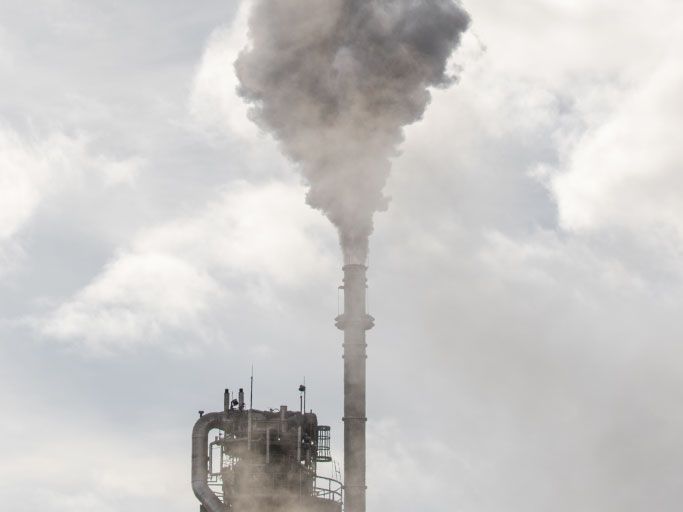Delhi loves to be in the news. After snatching the crown of world capital for air pollution from Beijing, it was back in news for ‘emergency’ ratings for air pollution as signaled by 450 AQI (Air Quality Index) earlier this week. India is home to 14 most polluted cities and the situation is becoming worse with each passing day.
 But should we be worried? Apart from the usual airport and chest congestion, how bad could it get?
But should we be worried? Apart from the usual airport and chest congestion, how bad could it get?
Really bad. It causes cancer. And NOT just lung cancer.
In this article, Senior Oncologist Dr. Gagan Saini , explains how air pollution wins its ultimate medal, cancer. Read on to understand the science behind PM 2.5 and cancer.
First things first, air pollution is not just associated with lung cancer. There is substantial evidence it is a risk factor for breast cancer, liver cancer, and pancreatic cancer. The air we breathe is infested with cancer-causing substances and has been classified as carcinogenic to human beings. The Air Quality Index reading of India’s capital, Delhi, has hovered between ‘severe’ to ‘very poor’ as the city loses lives to pollution every passing day.
What exactly is air pollution?
Air pollution is the presence of harmful substances in the air we breathe. It includes a mixture of different substances like fumes from cars, smoke from burning crop wastes, construction work and natural substances like dust.
In 2013, outdoor air pollution was identified as a cause of cancer by the International Agency for Research on Cancer (IARC). It has been designated as a carcinogen because it directly correlates with increased risk of cancer apart from causes such as smoking and obesity. The fact that nobody is immune to air pollution is important.
The research shows that tiny dust-like particles – called ‘particulate matter’ (or PM) are an important part of air pollution. The smallest particles – less than 2.5 millionths of a meter across, known as PM 2.5 are a primary cause of lung cancers caused by pollution. It is known from different researches and meta-analysis that the risk of developing lung cancer increases as the level of PM 2.5 in the air increases.
How does particulate matter PM 2.5 causes cancer?
PM 2.5 inflicts adverse effects on a large number of people. It has the ability to travel deep into the respiratory tract reaching the lungs. It comes from construction equipment, vehicle exhausts, and other toxic emissions like firecrackers and factory pollutants. Listed below are carcinogenic effects on people when PM 2.5 reaches unhealthy levels.
1. Injury from free radical per-oxidation
PM 2.5 has free radicals, metal, and organic components. These can freely diffuse into our blood through the lung and damage and oxidize lung cells thereby causing primary body injury.
2. Acceleration of DNA damage
PM 2.5 surface is rich in iron, copper, zinc, manganese, other metals, harmful poly-cyclic aromatic hydrocarbons, lipopolysaccharide etc. These components can further increase free radical production in the lung and further damage the DNA in healthy cells.
3. Inflammatory injury
PM 2.5 induces inflammation. Inflammation is the body’s defense mechanism towards day-to-day infections. But PM 2.5 causes it to be active to an unhealthy extent. This leads to unchecked chemical activation which in turn leads to altered cellular divisions. The seeds of cancer are sown in this manner.
Once the unchecked cellular division starts with damaged DNA which is not effectively repaired in time, it becomes a perfect platform for an escalating DNA damage and unchecked activation of ‘oncogenes’. ‘Oncogenes’ are those, that if kept unregulated, have a high chances of forming cancer. These ‘oncogenes’ in the circumstance of unchecked growth and DNA damage induced by PM 2.5 trigger cancer formation.
The only way forward for humanity is to collectively check air pollution. Given the extent of challenges, gradual deceleration may be a better option than trying to fix this problem at one go. There is an urgent need for strong legislation, regular bans on carcinogenic pollutants, and environment restoration projects.
Dr Gagan Saini is a senior oncologist and part of Onco.com panel of cancer experts.
Click here to start your case. We are here to help!



